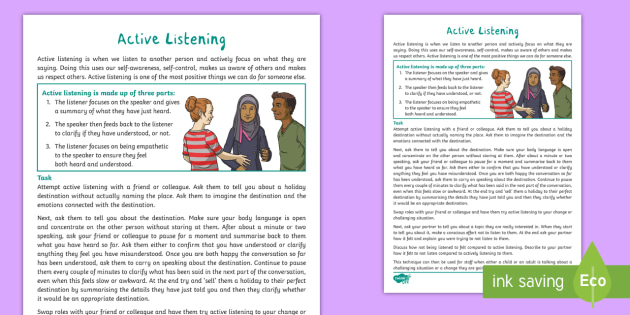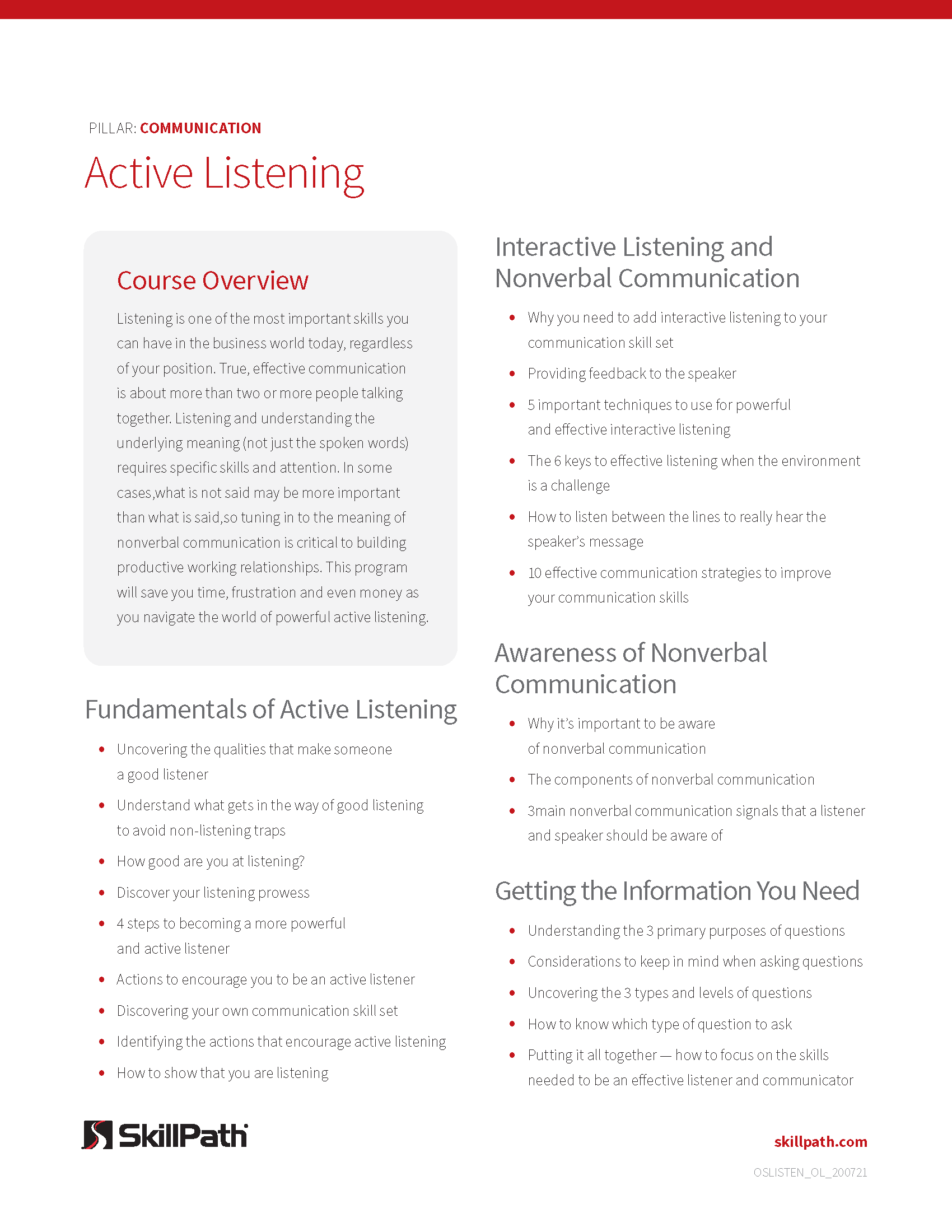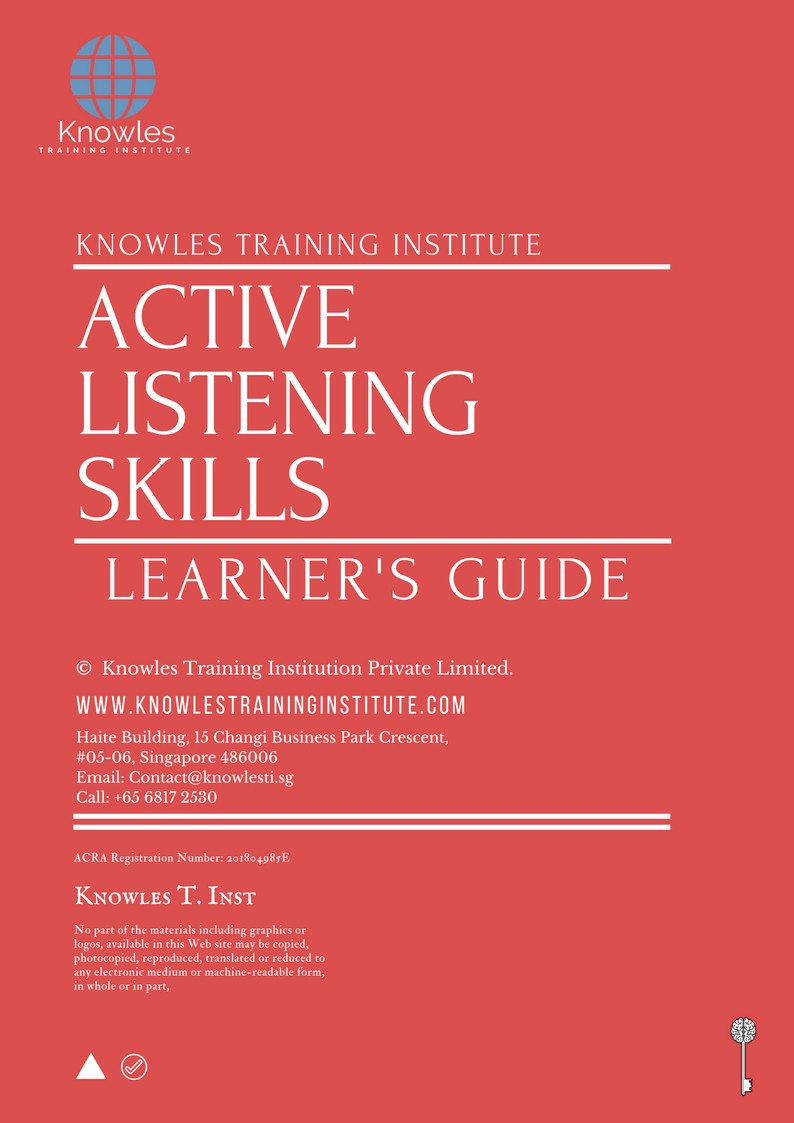
Before starting to listen, think of the goal of listening and match your goal to the speaker’s goals. Given the importance of listening skills in the 21st century, how do we develop active listening skills in the new generations? Here are four steps to developing active listening skills.
#Active listening skills training exercises download
Given the importance of this skill in the 21st century, how do we develop active listening skills in the new generations? 4 steps to developing active listening skills Download the publication “Skills for Life: Listening” A recent study on skills found employers look for communication in newly hired people (Carnevale et al., 2020).

Umphrey and Sherblom ’s (2017) empirical research shows that listening “not only connects us and helps us negotiate our relational differences, but listening also facilitates self-reflection and helps us understand and develop our ways of thinking and feeling.” Learning to listen is relevant from early childhood and throughout adulthoodĭespite its importance, listening skills are not prioritized in school curricula, although students spend between 50% and 75% of the time in class listening to their teachers, peers, or audiovisual materials (Jalongo, 2010).īy the time a person is an adult, they need to be an excellent listener to thrive in the world of work. This helps us reduce stress, anxiety, and depression. By listening to other people, we can feel accompanied, understood, and supported in difficult times. Listening has a positive impact on our mental and emotional health. In addition, it shows respect, interest, and trust towards the other. Furthermore, listening allows you to develop other skills, such as empathy, which leads to a better understanding and collaboration between peers.

Therefore, it is a fundamental skill for any successful relationship. We maintain our connections with others by listening. Therefore, listening skills can improve reading comprehension, learning, and academic performance. The first three years of life are critical for developing auditory and neural connections in the brain, and early listening experiences are building blocks for literacy. For example, listening skills can improve reading comprehension, learning, and academic performance early and later (Jalongo, 2010). Listening helps us learn and assimilate knowledge from different sources. For example, research by Izchakov and Kluger (2018) found that building a listening-based communication culture makes workers feel more relaxed, more self-aware of their strengths and weaknesses, and more willing to reflect non-defensively, which results in an improvement in communication. By listening, we can also show interest and respect for others, creating a climate of trust and collaboration. We can gain a much deeper understanding and avoid misunderstandings and miscommunications by paying attention to their words and gestures.

Improve communication.Īctive listening lets us understand what others think, feel, and want to convey. So here are the top benefits of listening, featured in Skills for Life: Listening. Active listening involves paying attention, showing interest, asking questions, and avoiding interrupting or judging. Listening is not just about hearing what others say but understanding others’ viewpoints, emotions, and needs.

Download the publication: Skills for Life: Listening.


 0 kommentar(er)
0 kommentar(er)
